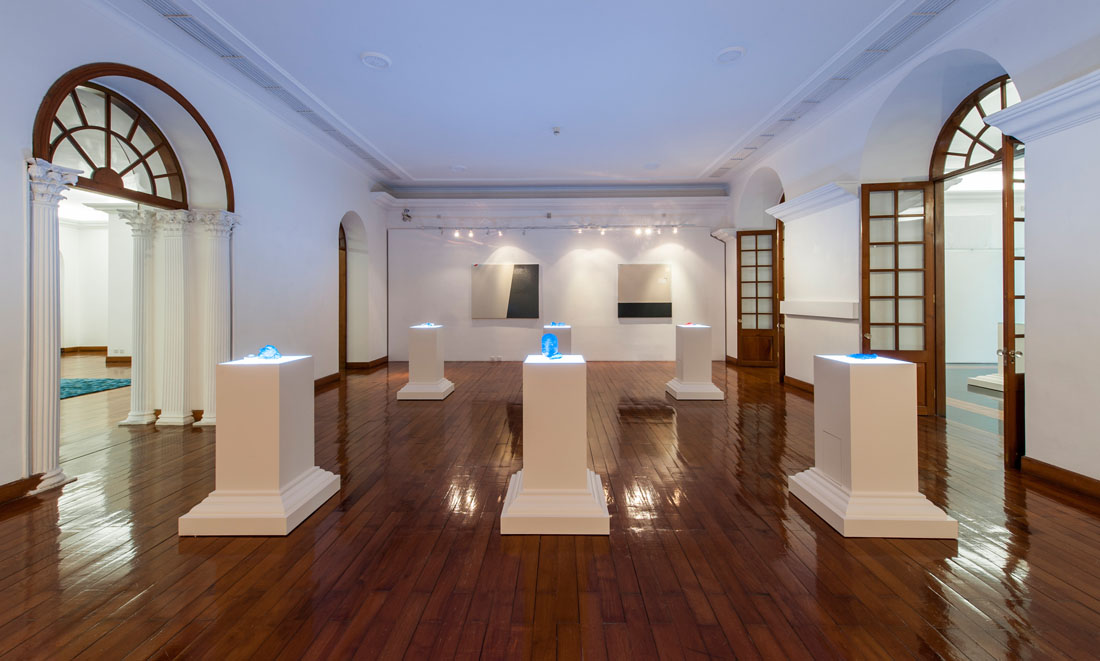Edouard Malingue Gallery is pleased to announce that João Vasco Paiva (b.1979, Portugal) will be holding a solo exhibition Cast Away at the Orient Foundation in Macau. A graduate from the Porto Arts Institute, João Vasco Paiva moved to Hong Kong in 2006 and is highly lauded for his practice, which across multiple mediums, consistently explores how urban spaces may serve as catalysts for aesthetic production. Cast Away, Paiva’s first solo exhibition in Macau, explores the blurred boundary between the archipelago’s urbanised territory and its natural surroundings. Taking in account the history of the Orient Foundation, a XVIII century house that has historically hosted foreign visitors, as well as Macau and Hong Kong’s colonial pasts, Paiva presents in Cast Away a series of works, which across different mediums, present layers and forms of inquisitive engagement with the physical, geographical and cultural margins he is himself investigating.
At the heart of the exhibition is a new film, Unlimited (2014), which projected on two screens, presents distant images of Google earth and travels across the sea in dialogue with two texts: “Pilgrimage”, a XVIth century book that presents an account of the first impressions of Asia by a Portuguese traveller, and “China”, an early XXth century book written by Jaime do Inso in the early years of Portugal’s authoritarian regime. Although the two books are easily distinguishable by the fictional aspect of the former and the scientific accuracy of the latter, in “Unlimited” this difference is blurred; notions of territory, exoticism and mediated veracity are explored through a superposition of different layers of history and visual information. An acknowledgement to contemporary mapping techniques on the one-hand, the work also serves as a reflection of the areas of travel, and the fetish of the unknown; its vastness now quantifiable by a mere digital search yet previously not so simply accountable. Accompanying this work is a large-scale installation of a sailboat, which appears capsized. Made of fiberglass, the sculpture stands as both a relic of sea-bound travels as well as attests to the arrival of foreigners, both on long-term diplomatic stations as well as on short-term missions. Tilted to one side so only half of the ship is visible, the sculpture becomes a shelter, lying surrounded by a fictional sea created by the printing of Google earth mappings onto a carpeted expanse, a detail that both strikes a dialogue with his video work Unlimited and allows the viewer to explore the digitised material at a different level and through an alternative medium.
Accompanying these works is a series of paintings and wall sculptures that explore the fabricated spaces of travelling – arrival and departure – in which Paiva addresses the textures, signage and other elements present in both the vessels and the piers, elements that through an exposure to water reveal beneath them coats of time. Other wall sculptures incorporate textured elements from real-life boat safety jackets and seats. Amassed, stripped and repurposed, the pieces of plasticised cloth serve as indexes of the travel one makes today between the archipelago as well as to Macau. Presented as part of a two-dimensional work, the incorporated elements demand a focus on their use and purpose, while in the wider context of the exhibition, they serve as triggers for making a connection between contemporary sea travel and those modes and methods that have historically taken place. In parallel to these works will be a series, which summates the exhibition title; Paiva presents various cast objects, which he collected from the shores of his home in Hong Kong. Selected and preserved in clear scintillating resin, the final product presents a commentary on that which is shafted versus that which is collected as treasure and also builds a dialogue with the important relics held in the historical Orient Foundation where the exhibition is hosted.
Ultimately, the exhibition Cast Away presents a multi-faceted contemplation of not only the site’s urban history but also its wider geographical and cultural context. The exhibition prompts a reflection on contemporary versus previous travel and from that a wider consideration of previous mapping techniques versus contemporary visibility, hinting at a type of evolution without dictating the precise nature of these norms. Overall, Cast Away bridges a gap between Paiva’s own arrival in Hong Kong, one’s contemporary visitation and our engagement, through modern eyes, with a historically-charged environment.
João Vasco Paiva is considered one of Hong Kong’s leading emerging contemporary artists and has been exhibited widely in museums as well as galleries from Hong Kong and Portugal to the UK, Australia, Hungary and New York. Recently, Paiva was featured in the seminal ‘Hong Kong Eye’ exhibition at the Saatchi Gallery in London and held a solo show at the Goethe Institute in Hong Kong. Upcoming shows include a group exhibition at the Witte de With in Rotterdam. Furthermore, Paiva is the recipient of multiple awards, including the Hong Kong Emerging Artist Grant and the International Artist Support Grant awarded by the Calouste Gulbenkian Foundation in Portugal.
Cast Away
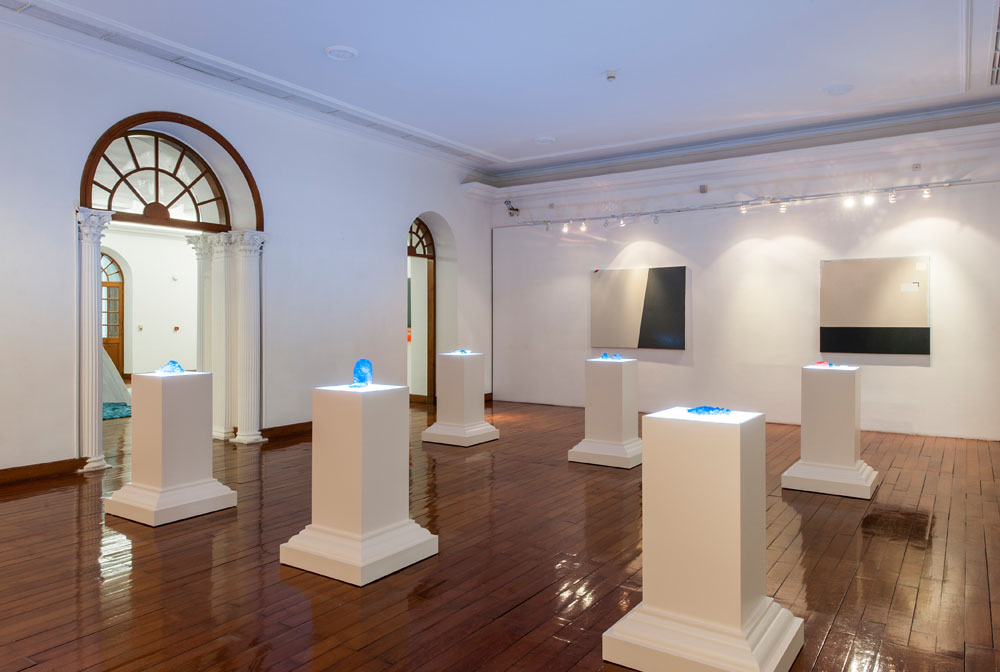
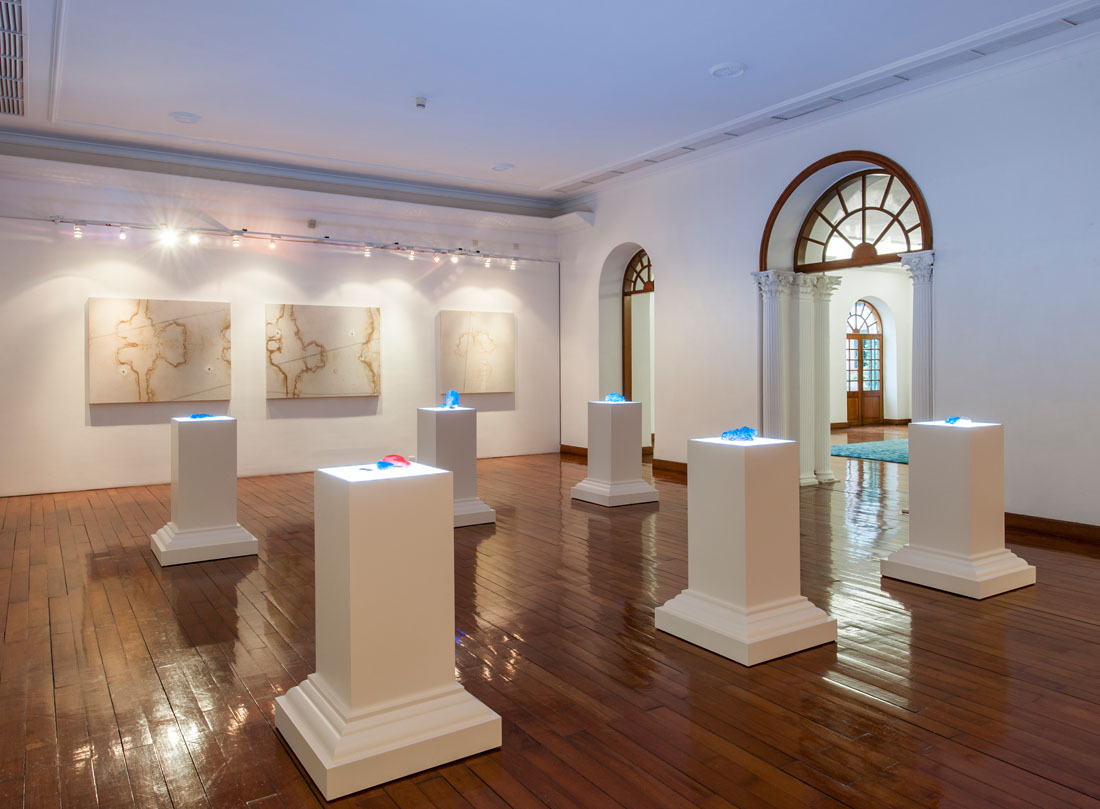
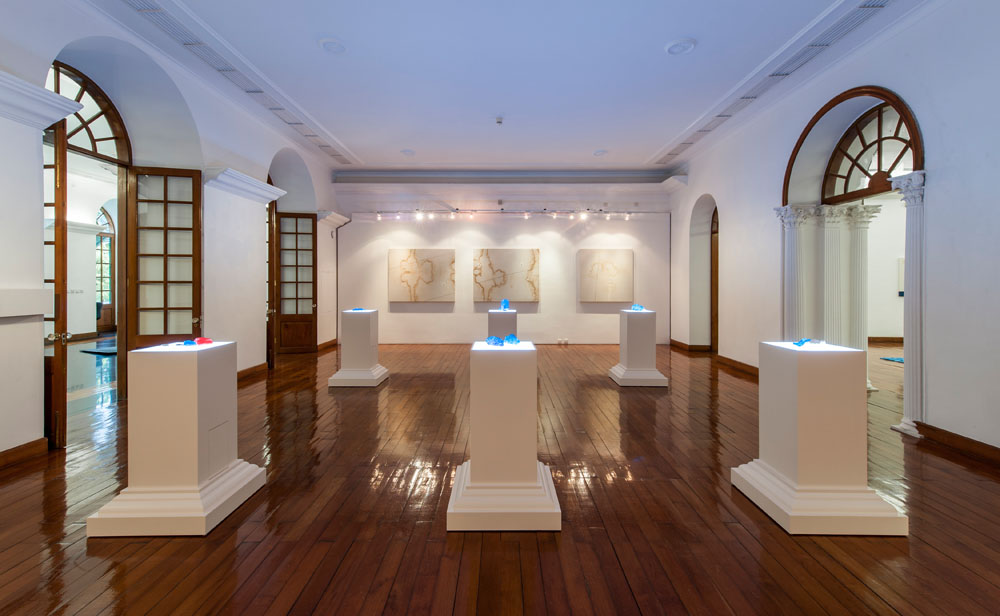
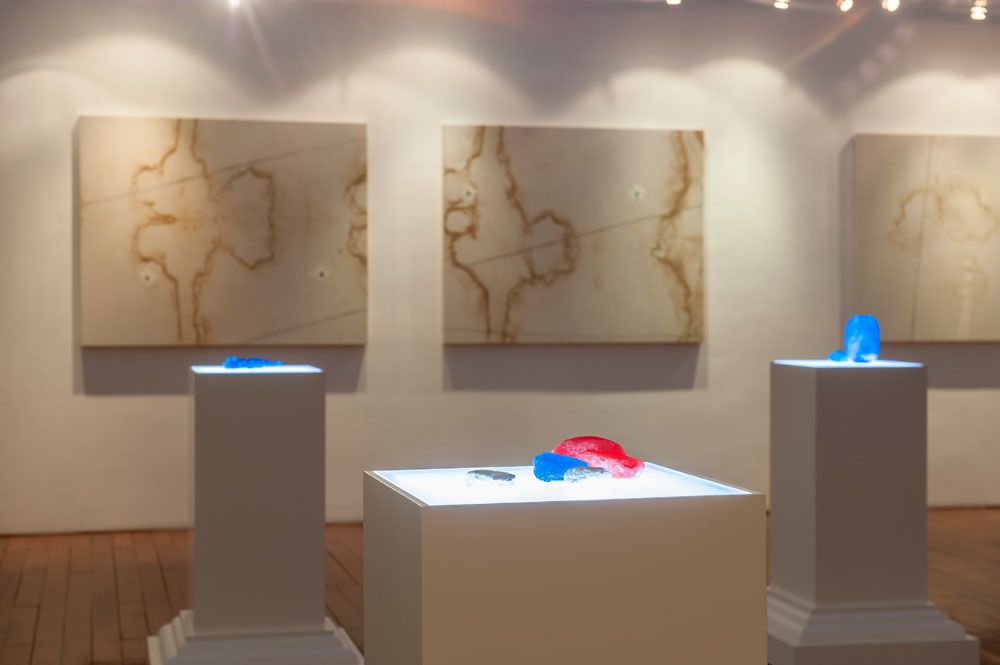
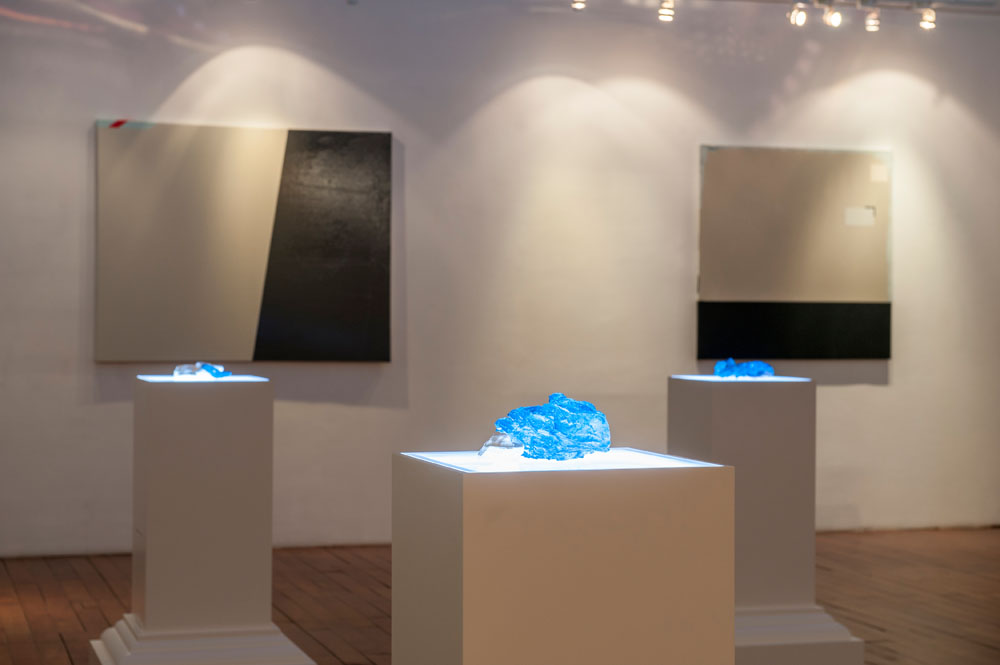
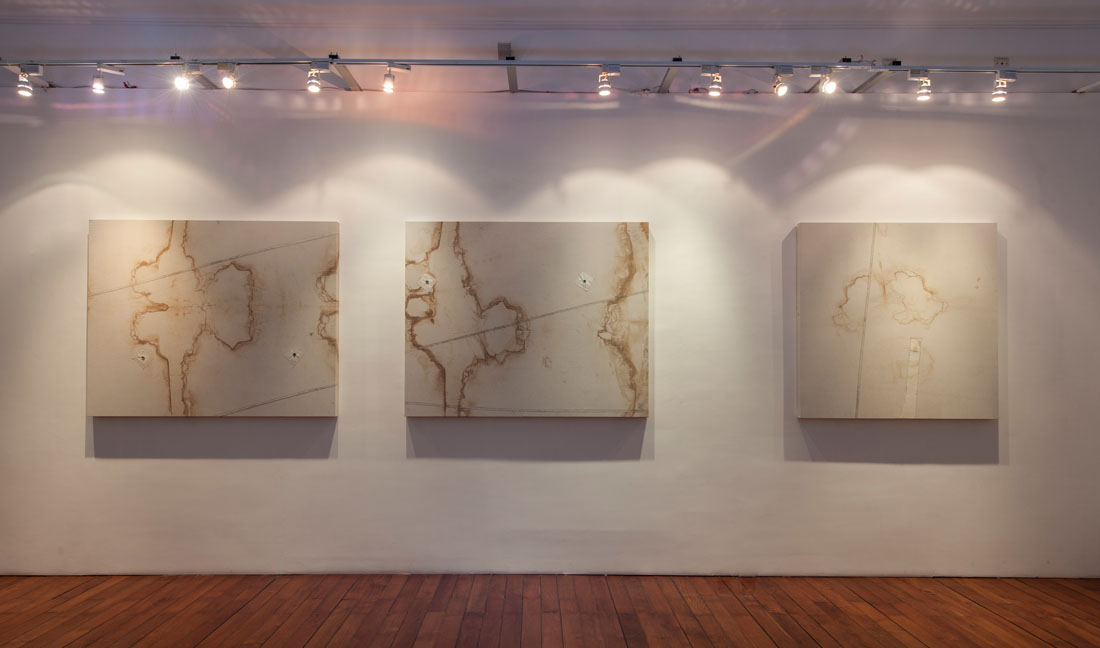
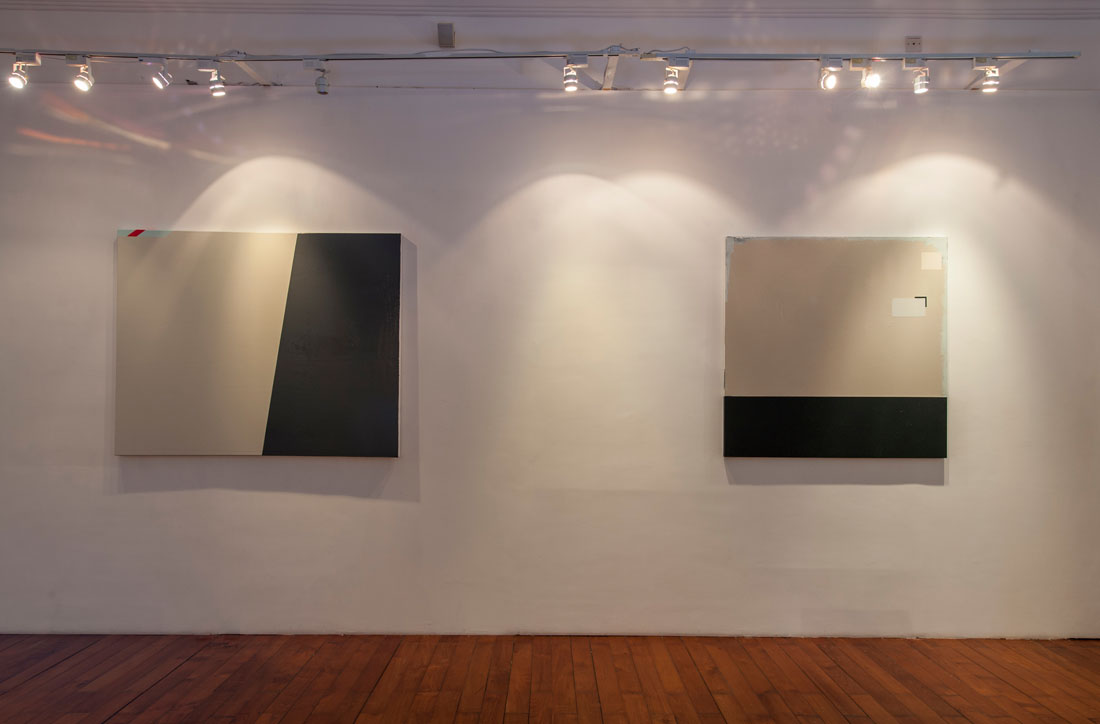
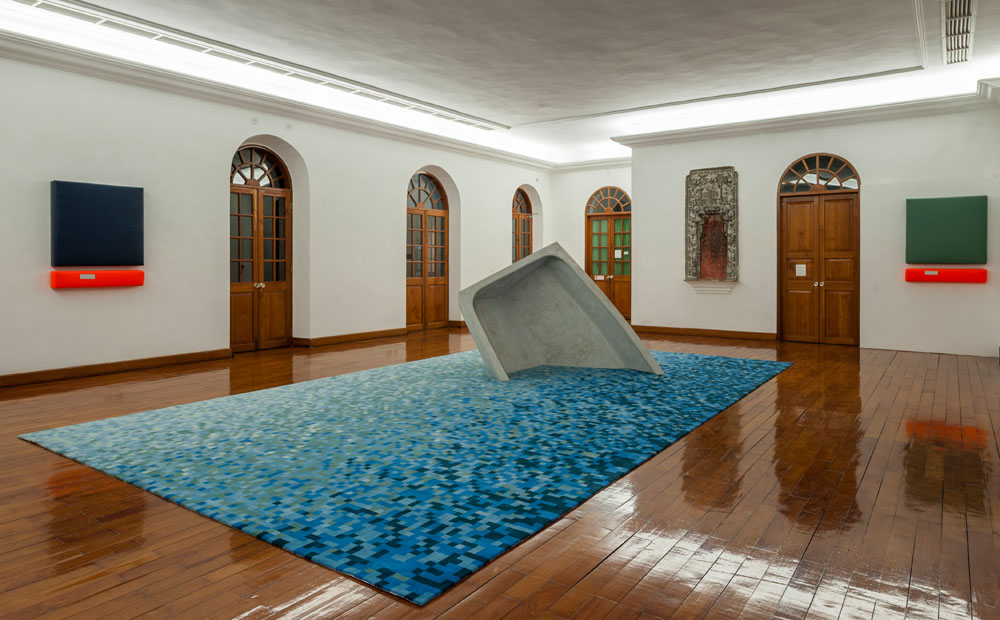
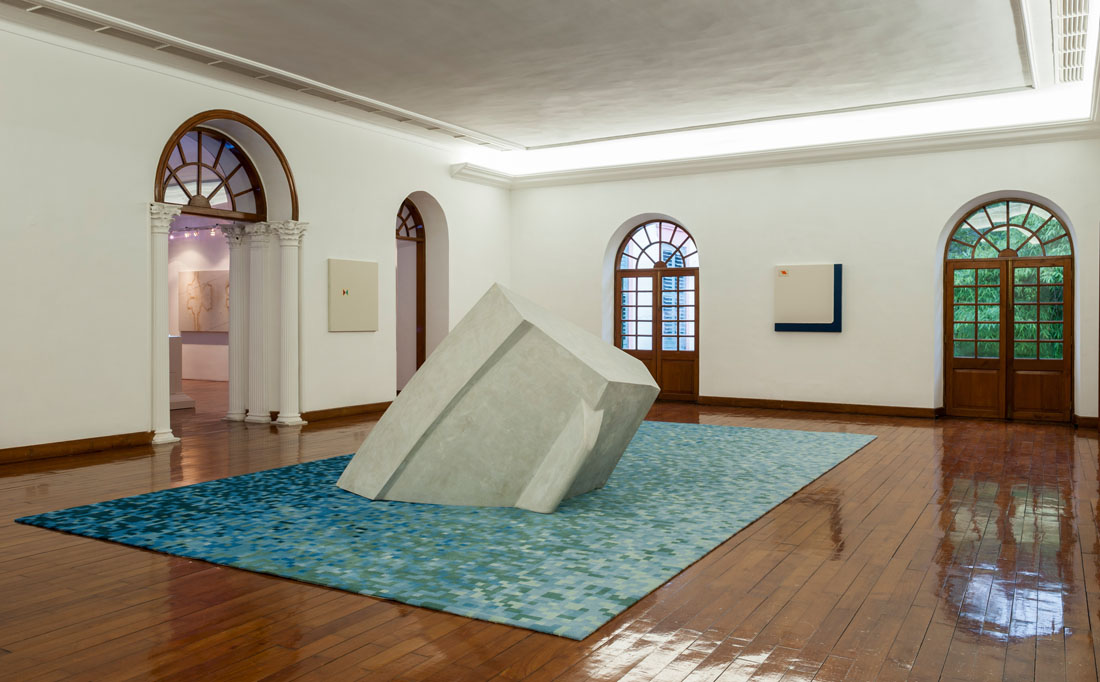
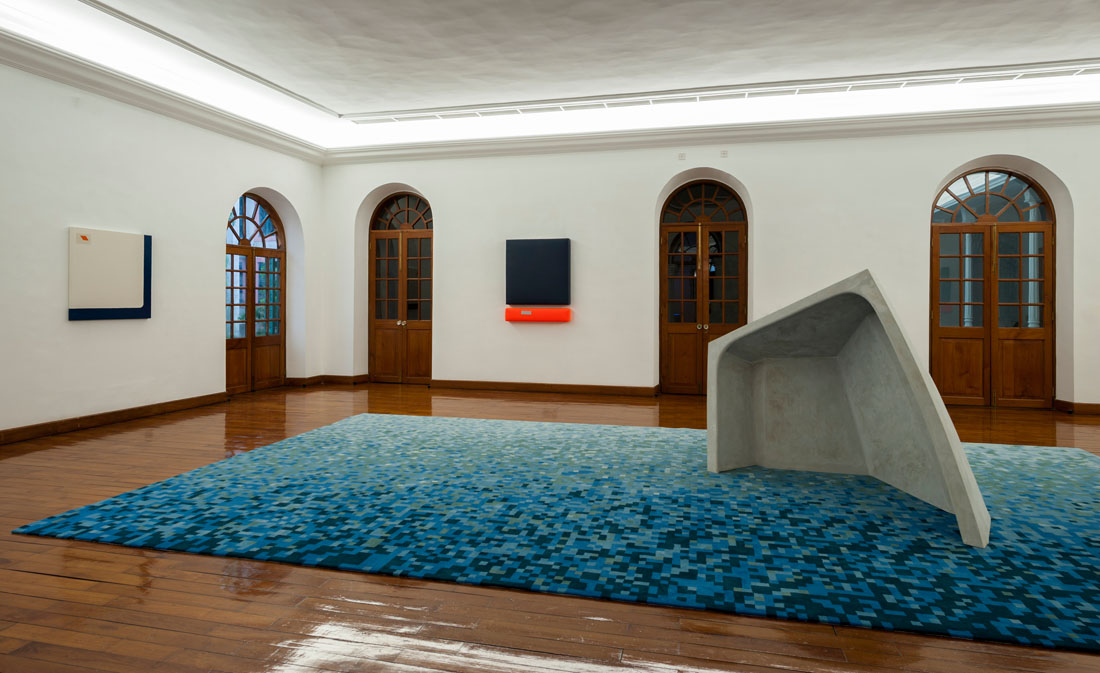
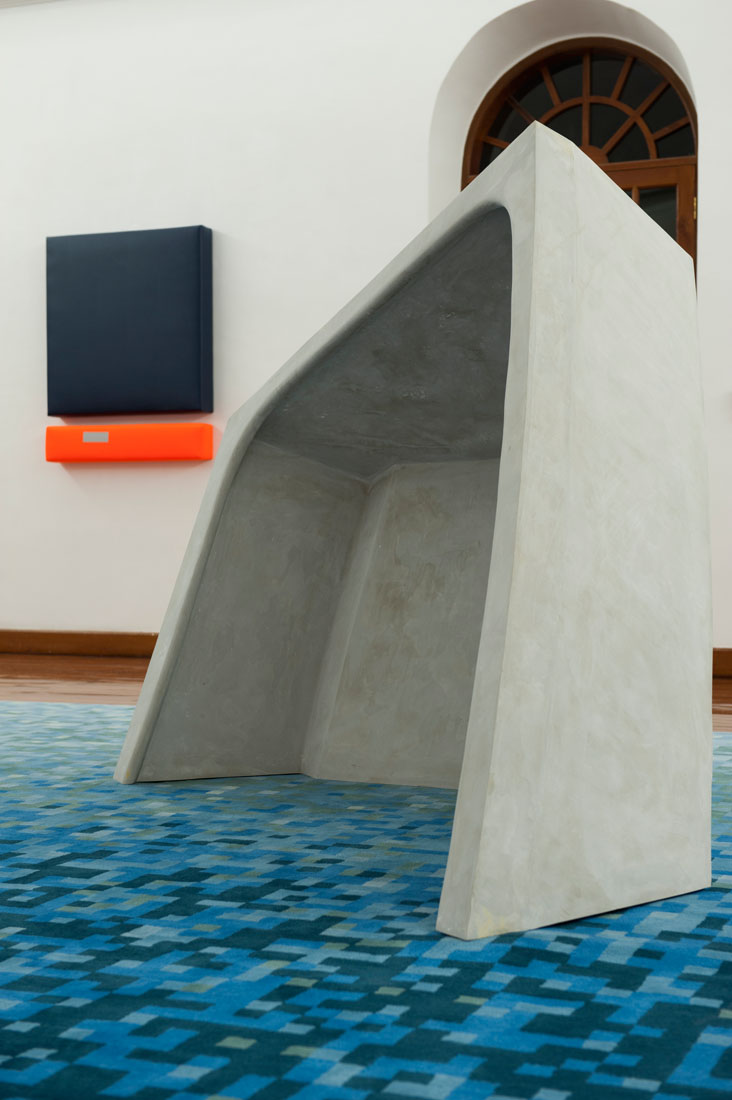
2014
Fiberglass sculpture
Approx. 170 x 150 x 120 cm on Wool carpet (700 x 400 cm)
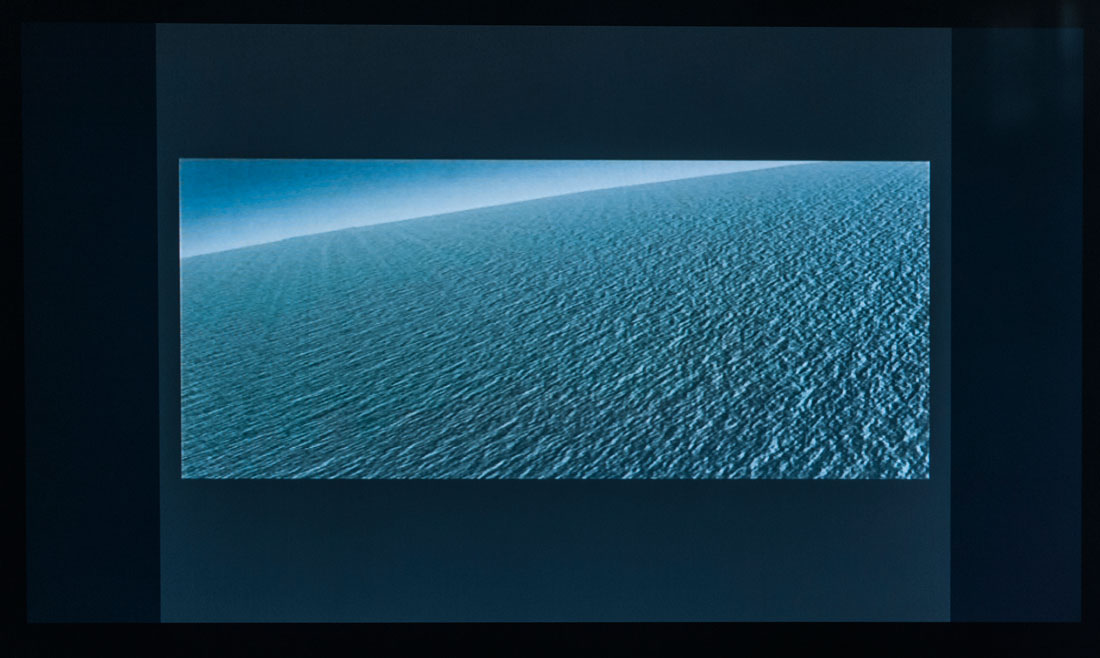
2014
Two channel HD video projection
40 mins
Music by VagusNerve and Joao Vasco Paiva
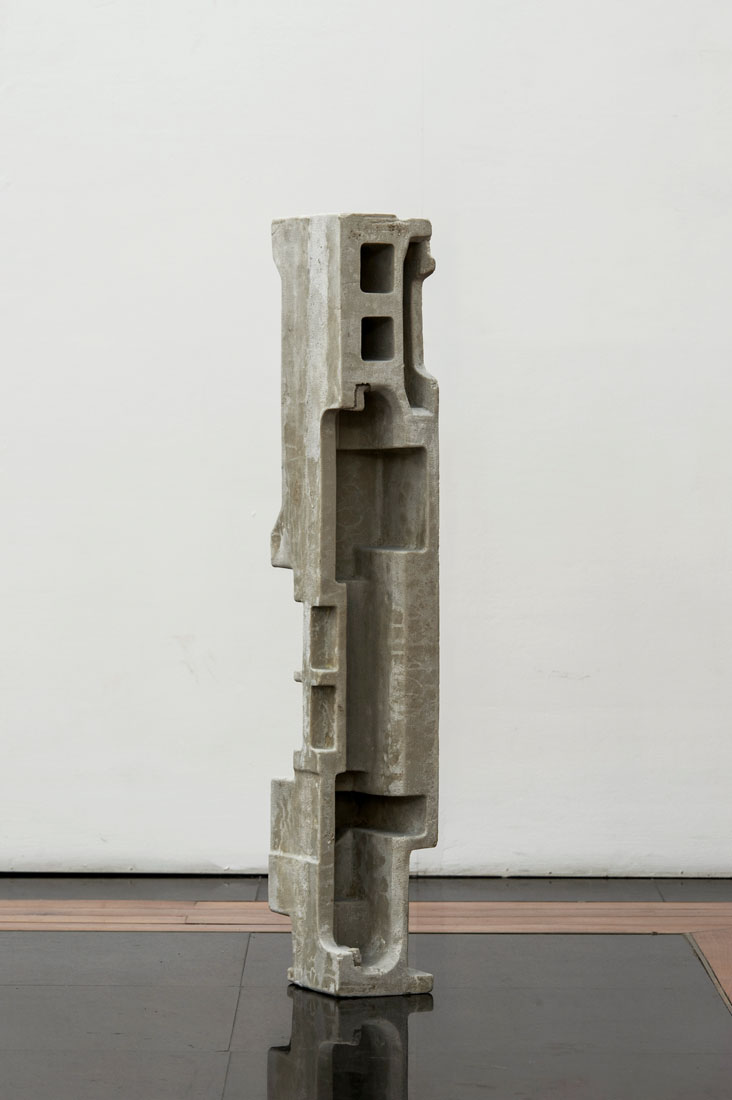
2014
Stone resin
20 x 30 x 100 cm
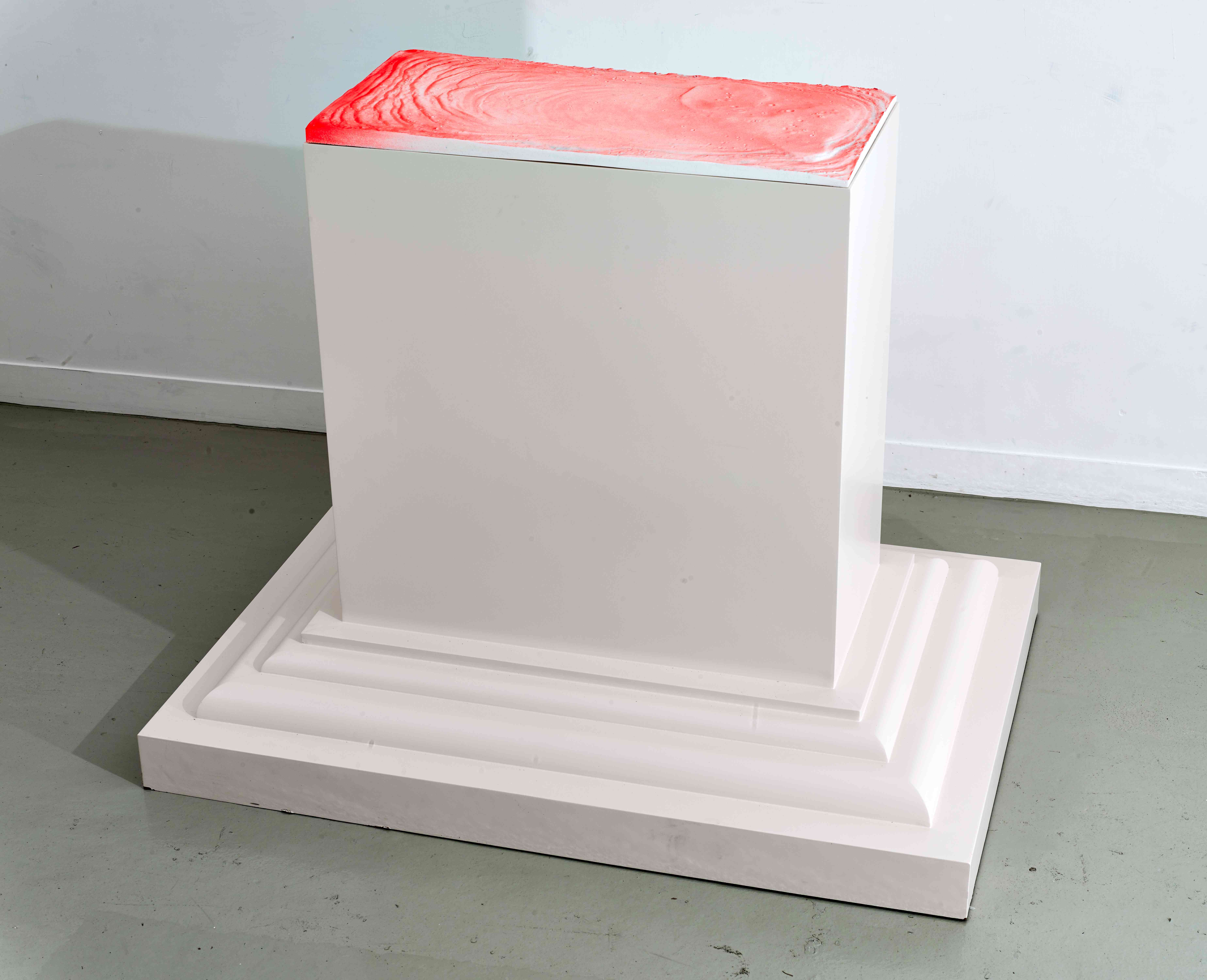
2014
Polyurethane resin on wooden pedestal
80x40x100cm
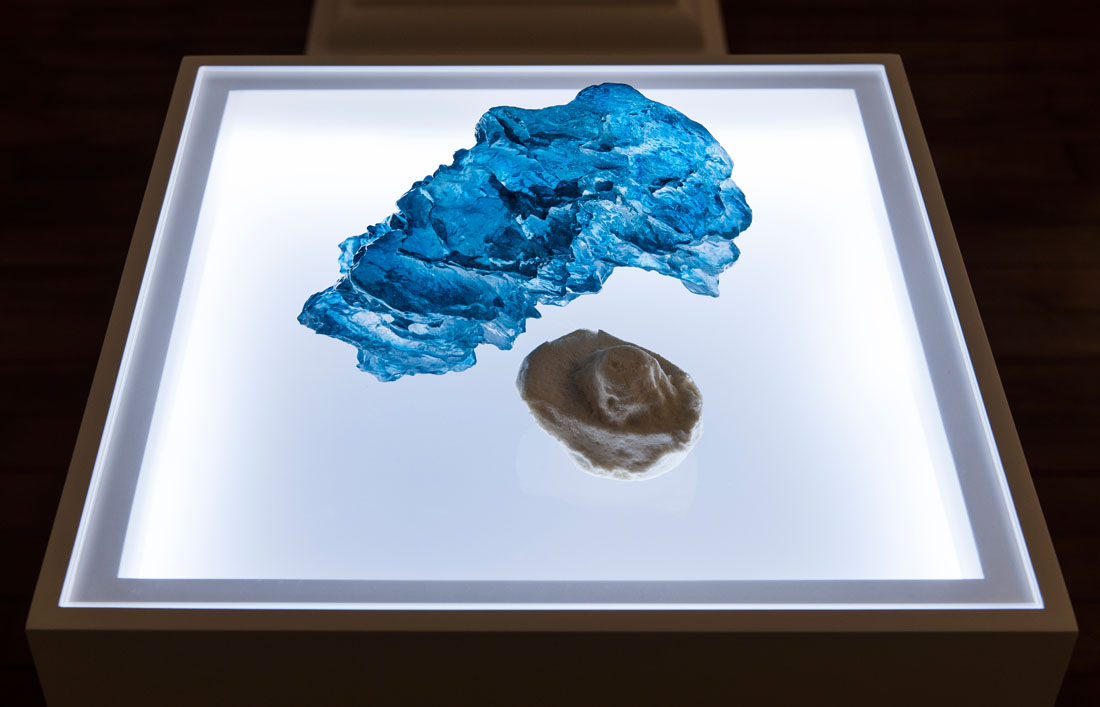
2014
Epoxy resin and polyurethane resin
Variable dimensions on wood pedestal 40 x 40 x 100 cm
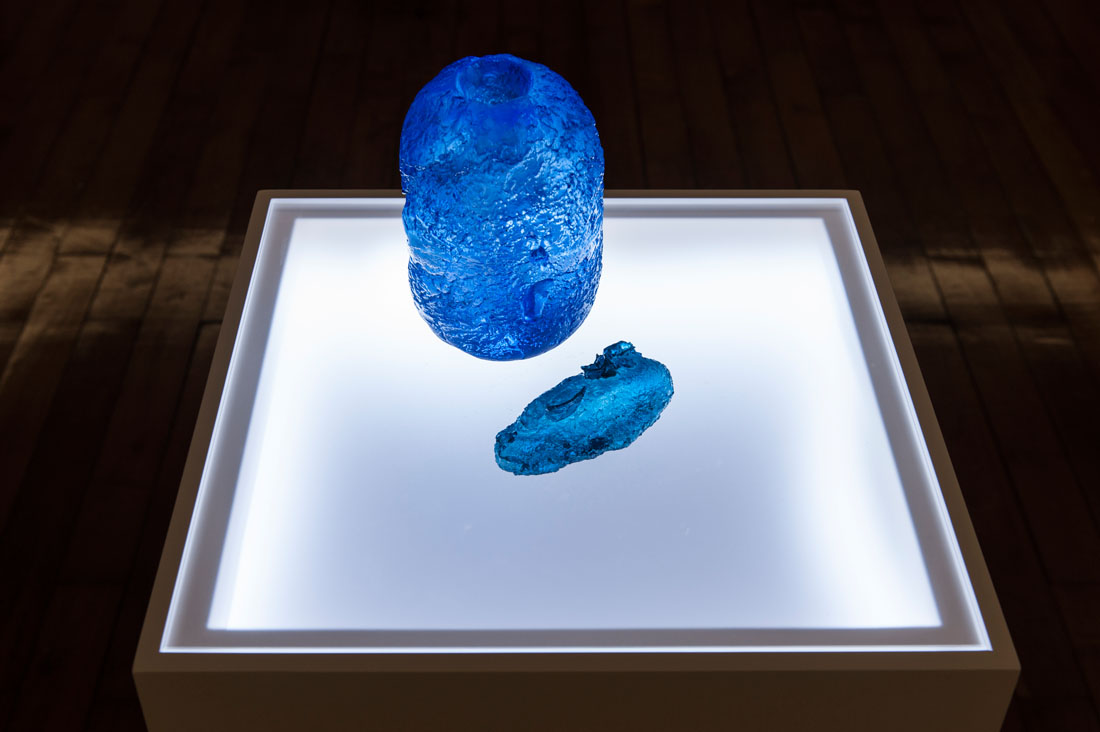
2014
Epoxy resin and polyurethane resin
Variable dimensions on wood pedestal 40 x 40 x 100 cm
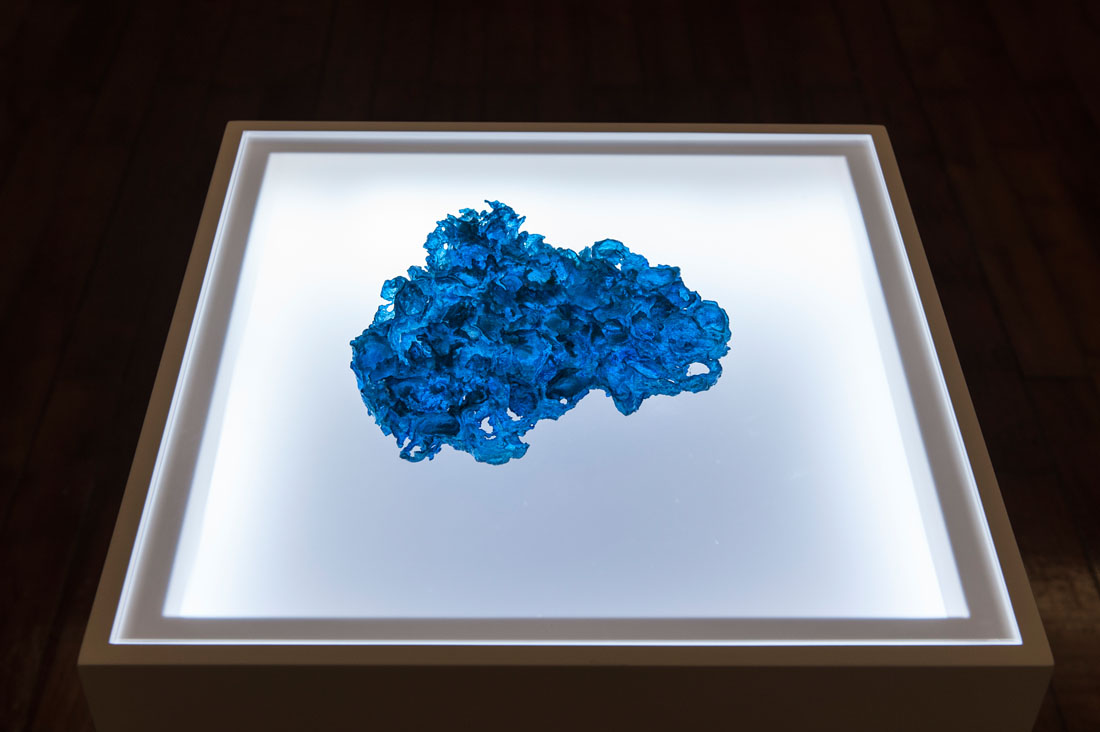
2014
Epoxy resin and polyurethane resin
Variable dimensions on wood pedestal 40 x 40 x 100 cm
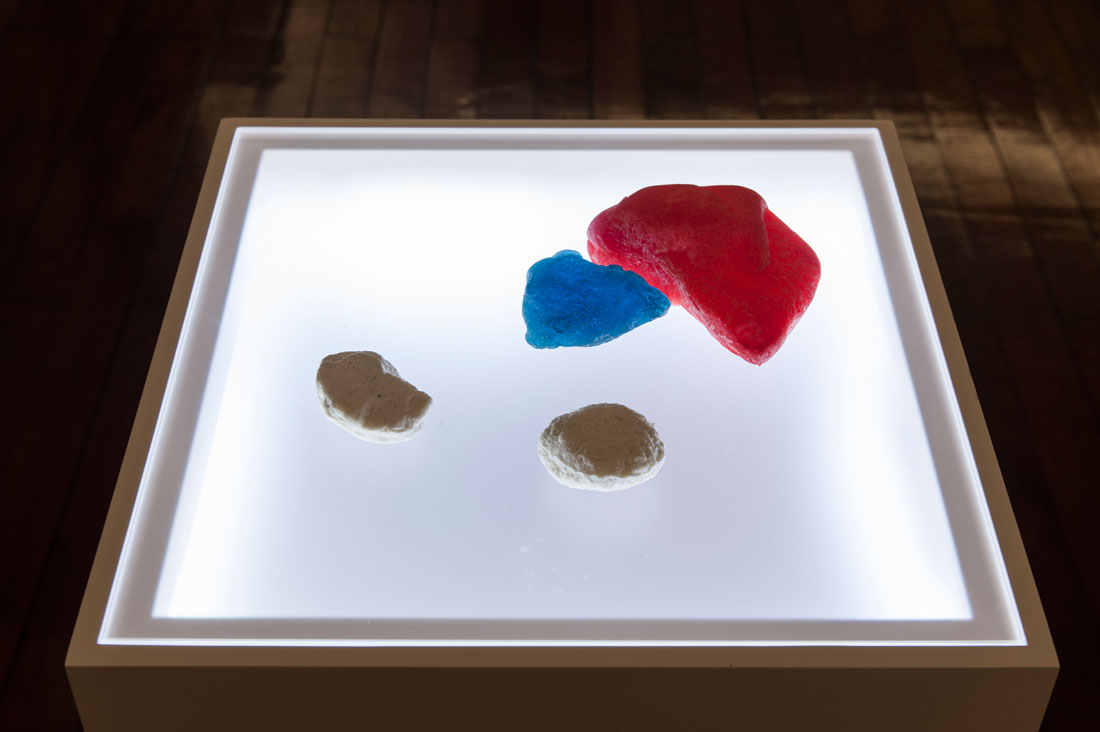
2014
Epoxy resin and polyurethane resin
Variable dimensions on wood pedestal 40 x 40 x 100 cm
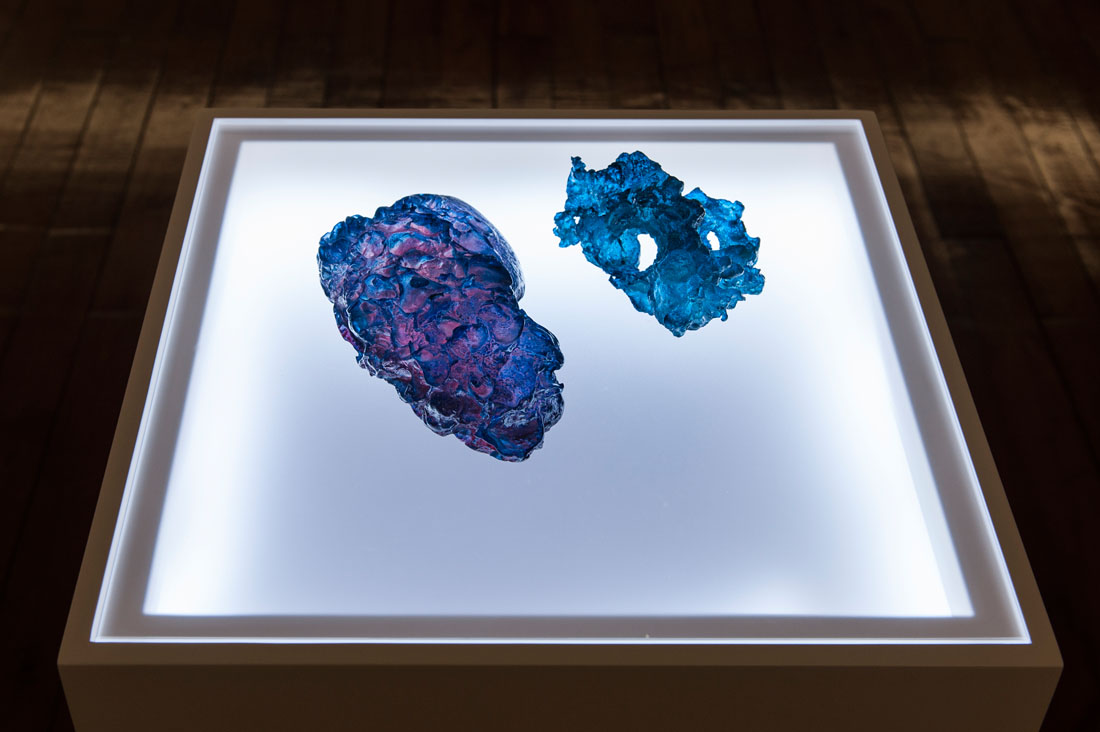
2014
Epoxy resin and polyurethane resin
Variable dimensions on wood pedestal 40 x 40 x 100 cm
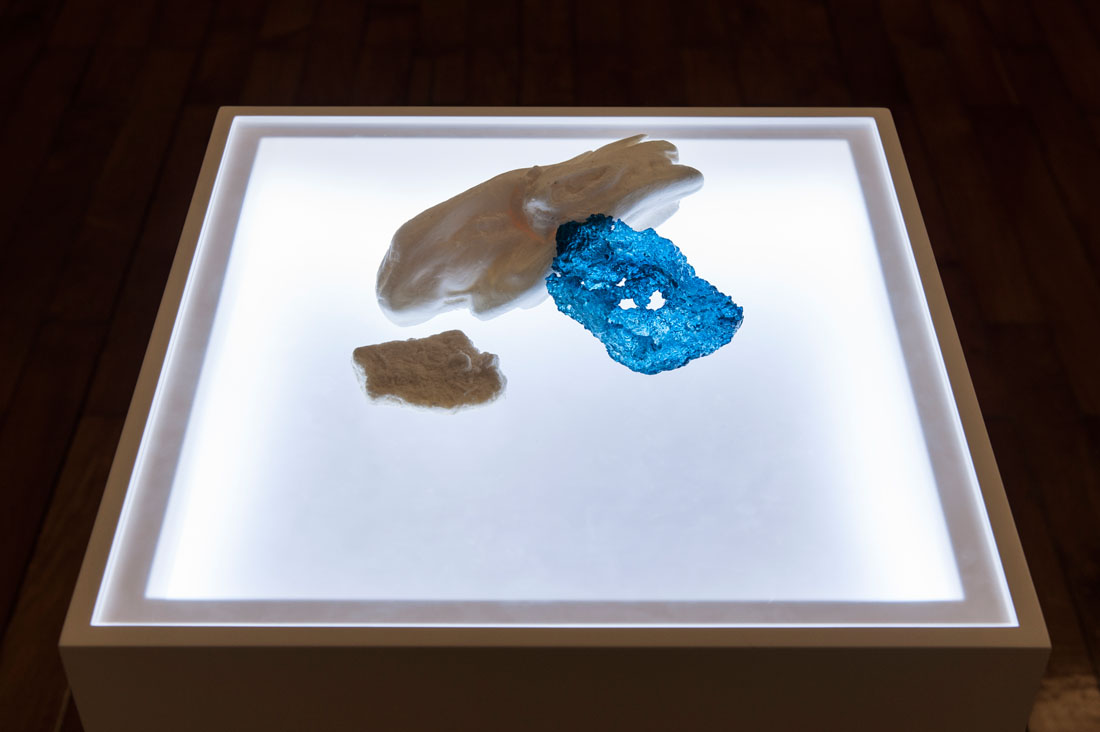
2014
Epoxy resin and polyurethane resin
Variable dimensions on wood pedestal 40 x 40 x 100 cm
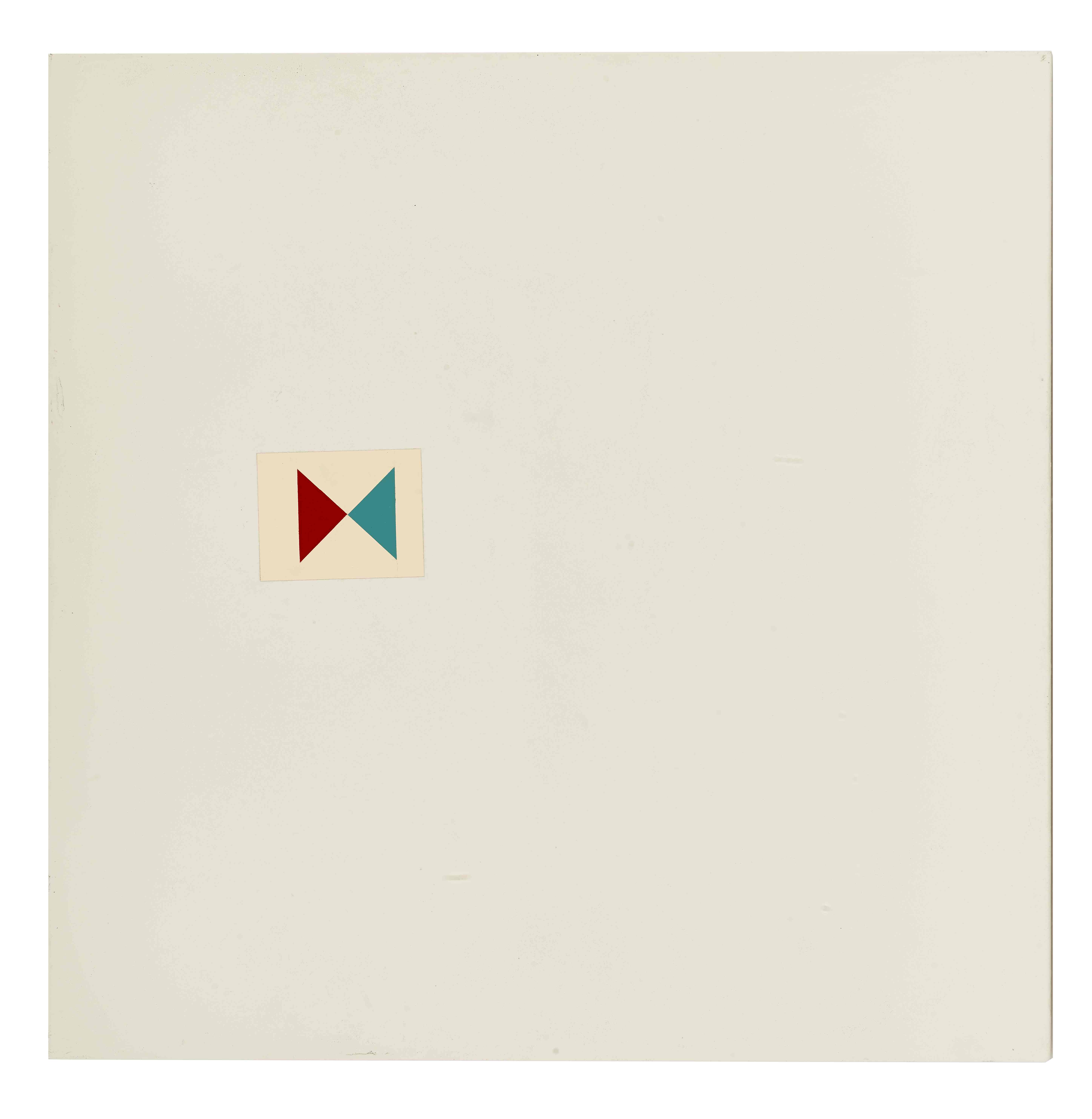
2014
Epoxy paint and latex on canvas
91x91cm
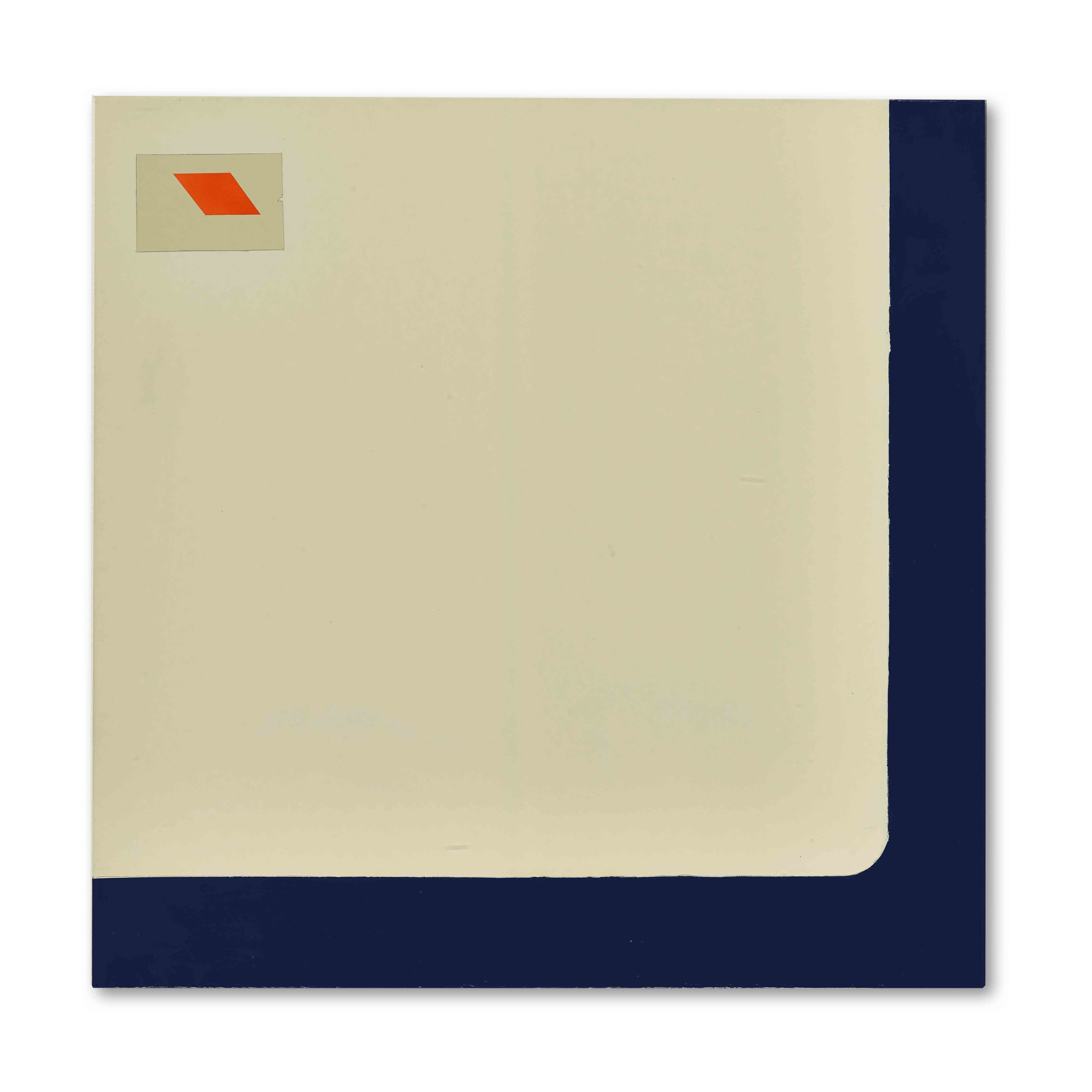
2014
Epoxy paint and latex on canvas
91x91cm
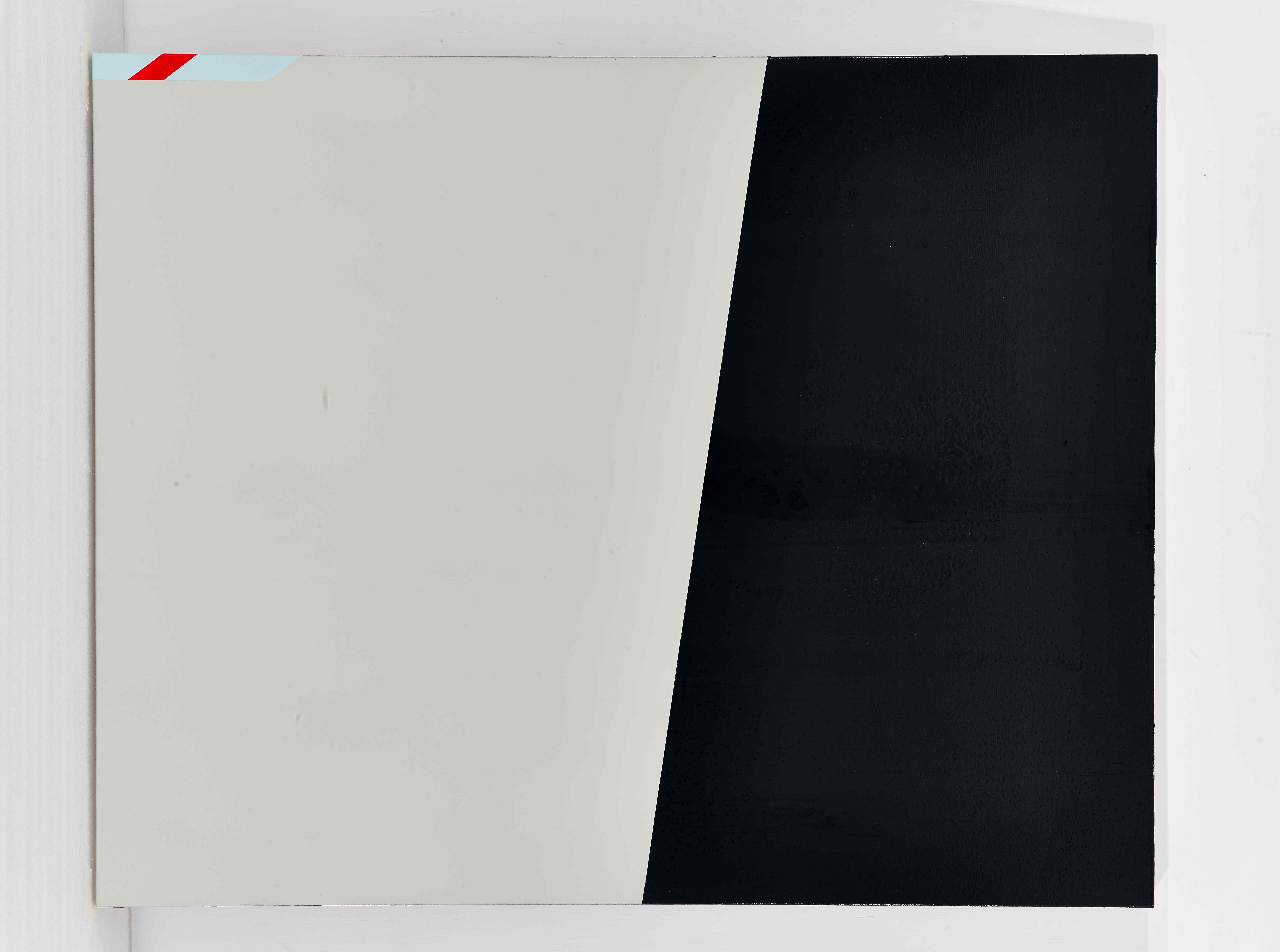
2014
Epoxy paint and latex on canvas
120x150cm
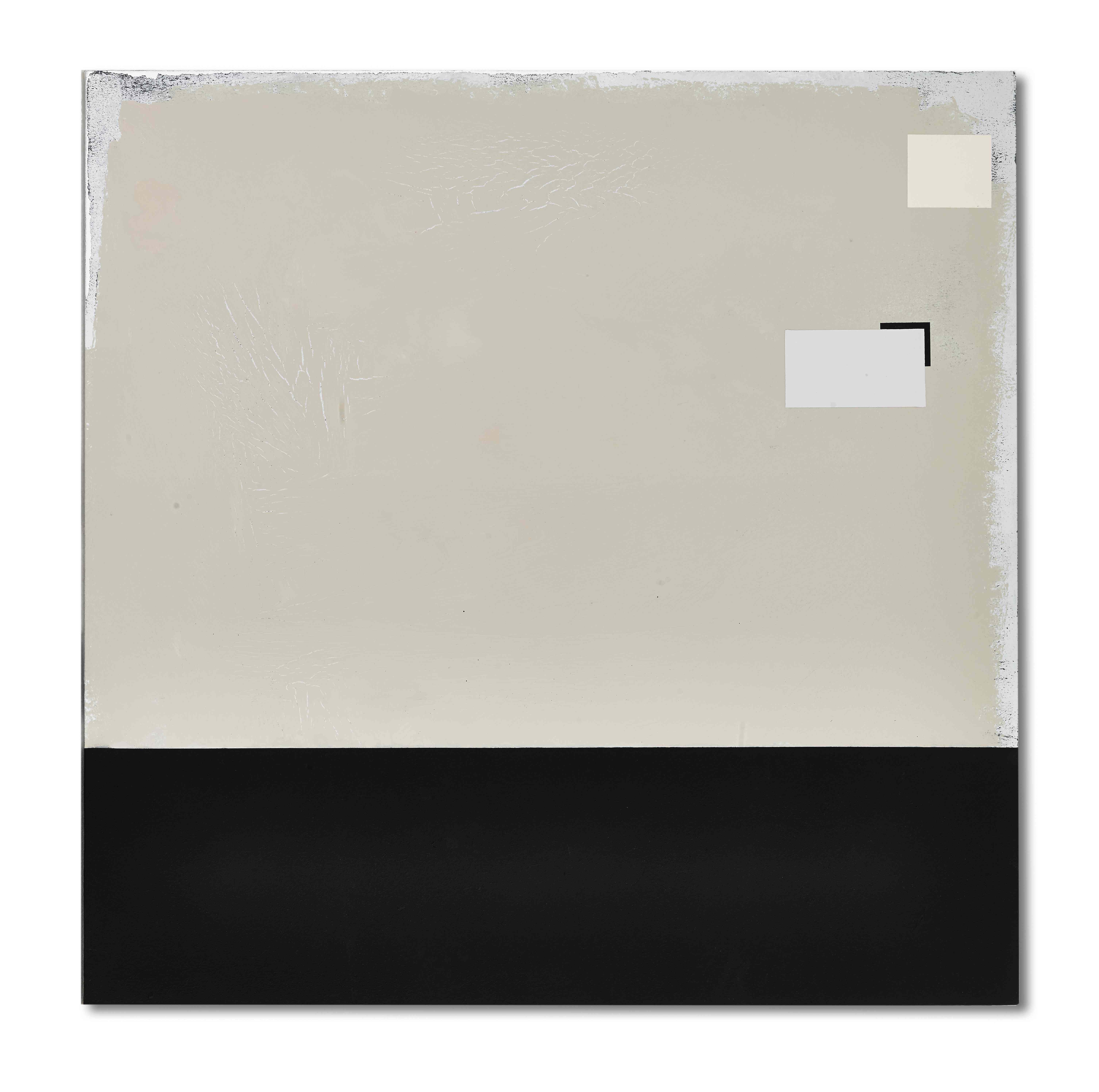
2014
Acrylic on canvas
120x120cm
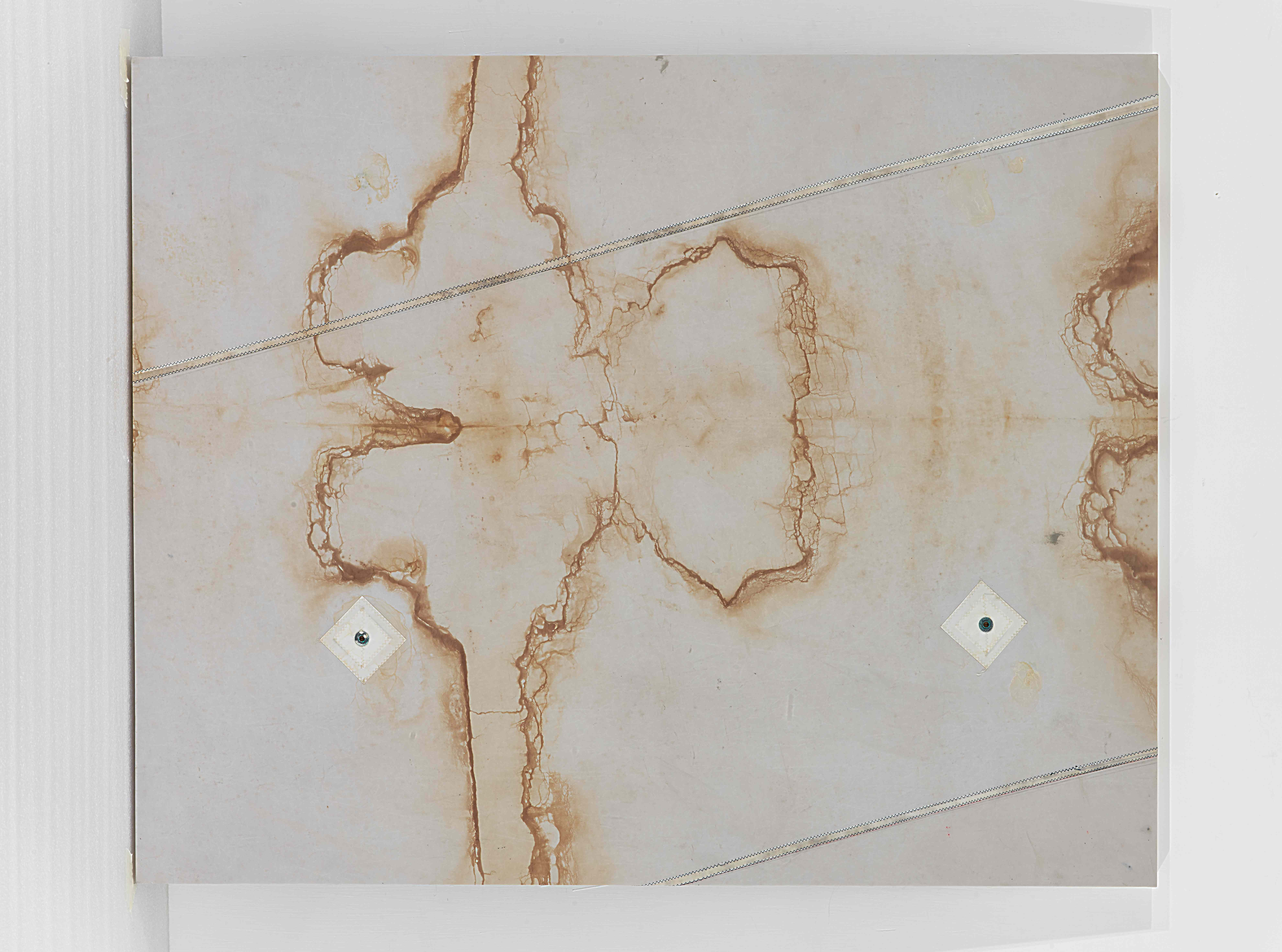
2014
Nylon on wood
150x120cm
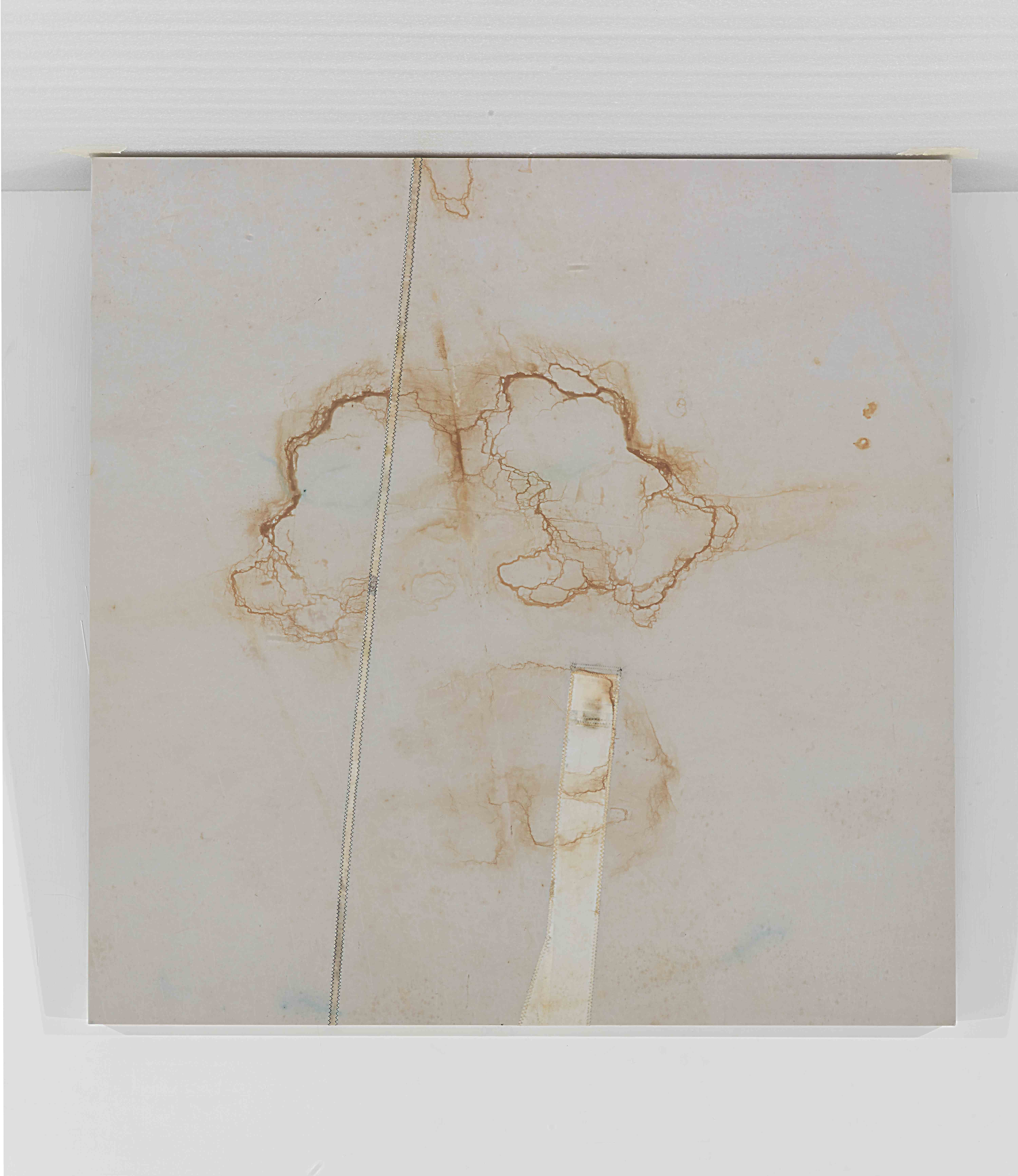
2014
Nylon on wood
150x120cm
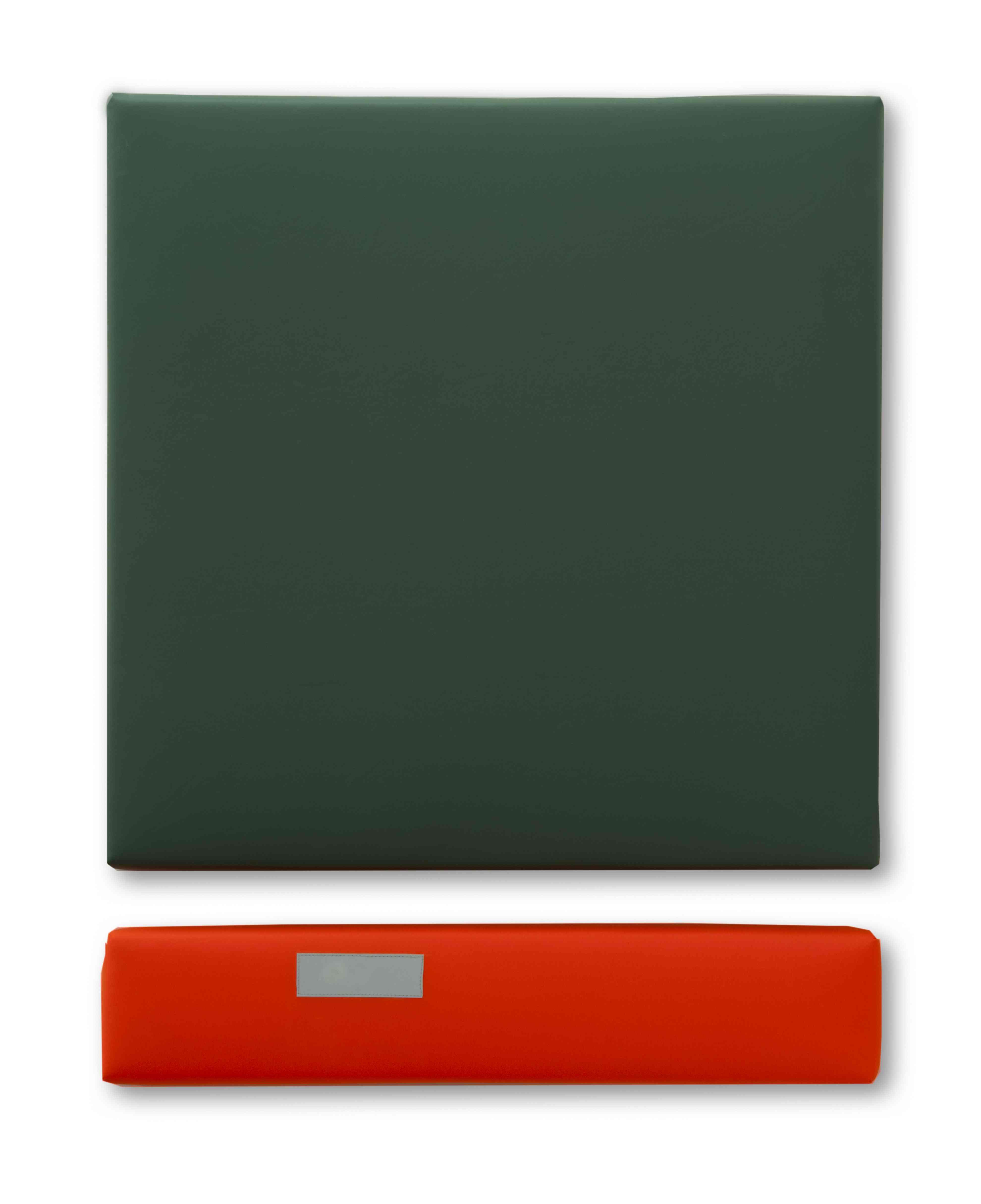
2014
PVC and nylon
91x91x10cm 91x17x10cm
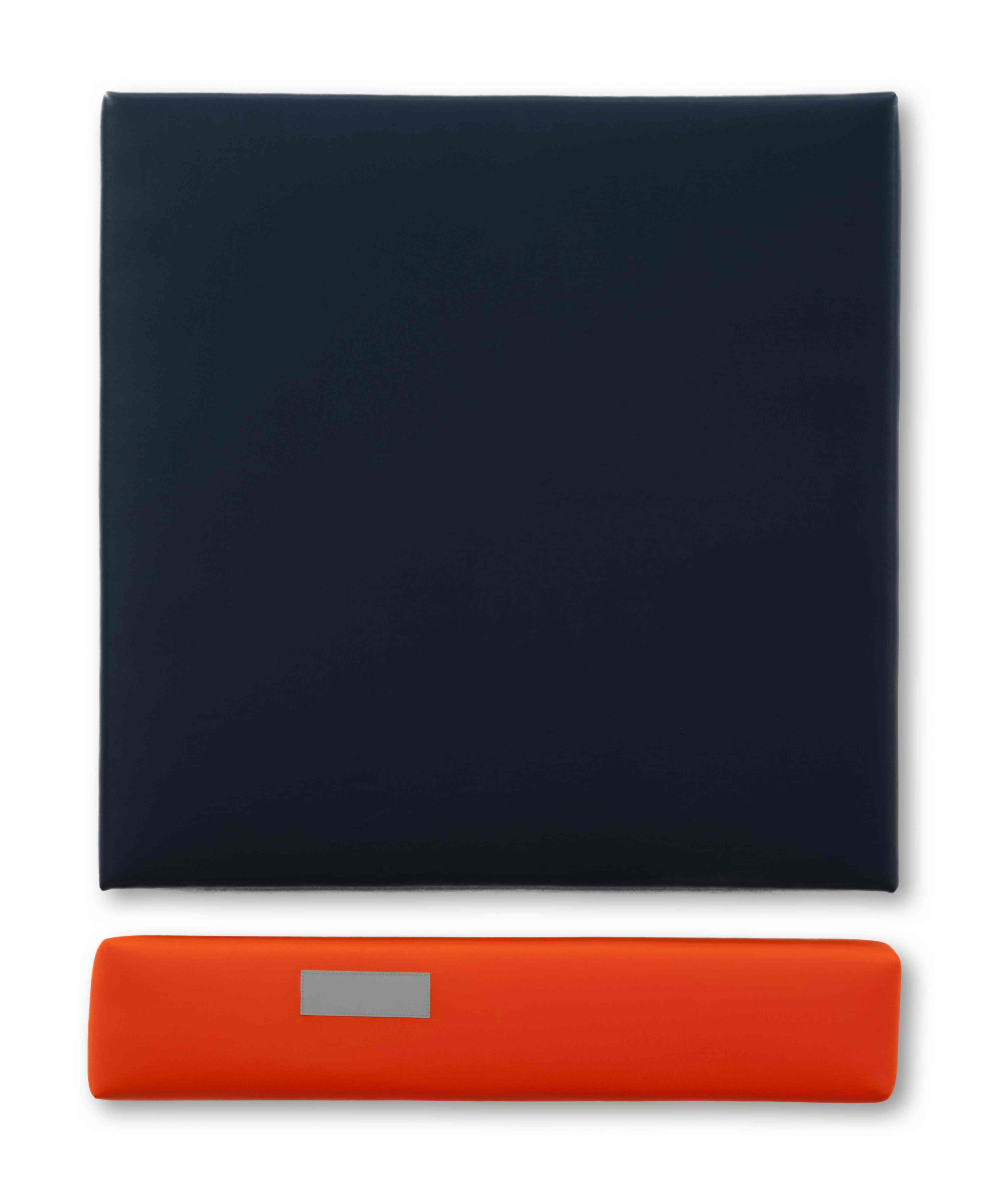
2014
PVC and nylon
91x91x10cm 91x17x10cm
